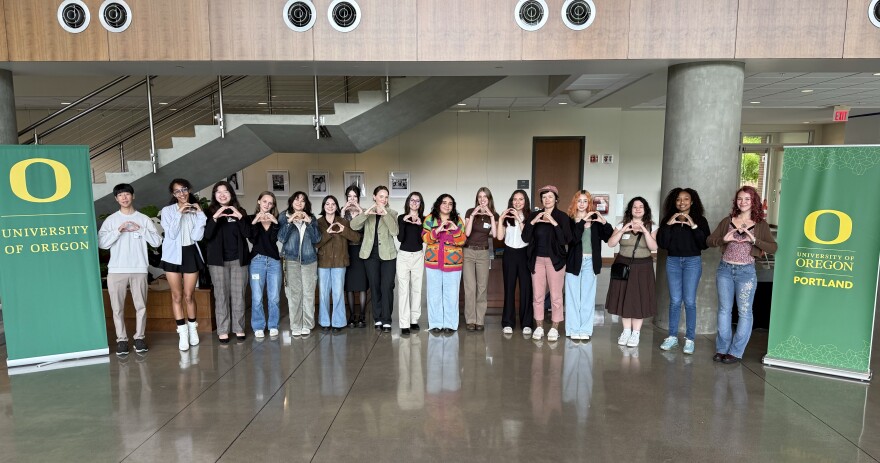Nevada just passed a law allowing bachelor’s degree-trained behavioral health specialists to practice in schools and other settings. The new legislation is part of a grassroots movement that started in Oregon.
Since launching in 2022, the University of Oregon's Ballmer Institute for Children's Behavioral Health has trained undergraduate students how to deliver skill-based interventions—like stress management and conflict resolution—to kids.
Balmer Institute Executive Director Kate McLaughlin said over the last decade, mental health issues in children and teens have skyrocketed. “Problems are depression, anxiety, acting out and suicidal thoughts and behaviors,” she said.
“Lots of folks think that the pandemic shutdowns caused a dramatic increase in adolescent mental health problems, but these trends were in place long before the pandemic started,” McLaughlin said.
However, McLaughlin acknowledged the pandemic did highlight a steady decline in child mental health support providers and services.
That’s why the approach of the Ballmer Institute, on UO's Portland campus, has focused on growing the behavioral health care workforce by creating an entirely new professional mental health field.
“We know the shortage of providers is particularly acute in schools. School counselors, school psychologists, school social workers—these positions are often the first to get cut when schools face budget challenges,” said McLaughlin, a clinical psychologist. “And that means the availability of support in schools for kids’ behavioral health needs has been declining over time.”

The students trained as child behavioral health specialists at the Ballmer Institute will be ready to work in a range of settings, not only in schools, but also in places like pediatricians’ offices and after-school programs.
McLaughlin said the Ballmer Institute’s child behavioral health specialist credential program not only grows the workforce but also frees up highly trained psychologists and social workers to help kids who need more intensive services, such as long-term therapy.
“Credentialing” for mental health service providers happens at the state level, McLaughlin said. In order to legally deliver mental health services, one must be licensed, and the state dictates what kind of training is required and what kinds of services may be provided. This is important to ensure that people get quality services and providers have the training they need.
“Our vision has always been that the Ballmer Institute could serve as a national model for how we can expand the workforce," McLaughlin said. "And what’s amazing is that in just a few short years, we’re already seeing that happen.”
While Nevada is the first state to formally adopt the Ballmer Institute’s Child Behavioral Health Training Program at a state university and establish a corresponding credential, Oregon may be next. A legislatively-created task force has recommended the creation of a bachelor’s level credential and a bill is expected to be introduced in the 2026 Oregon legislative session.
McLaughlin said more than 100 students are enrolled in the UO program and the first student cohort will graduate in June 2026.




